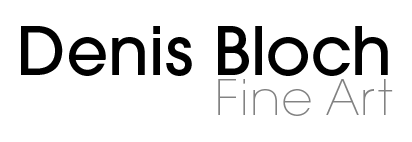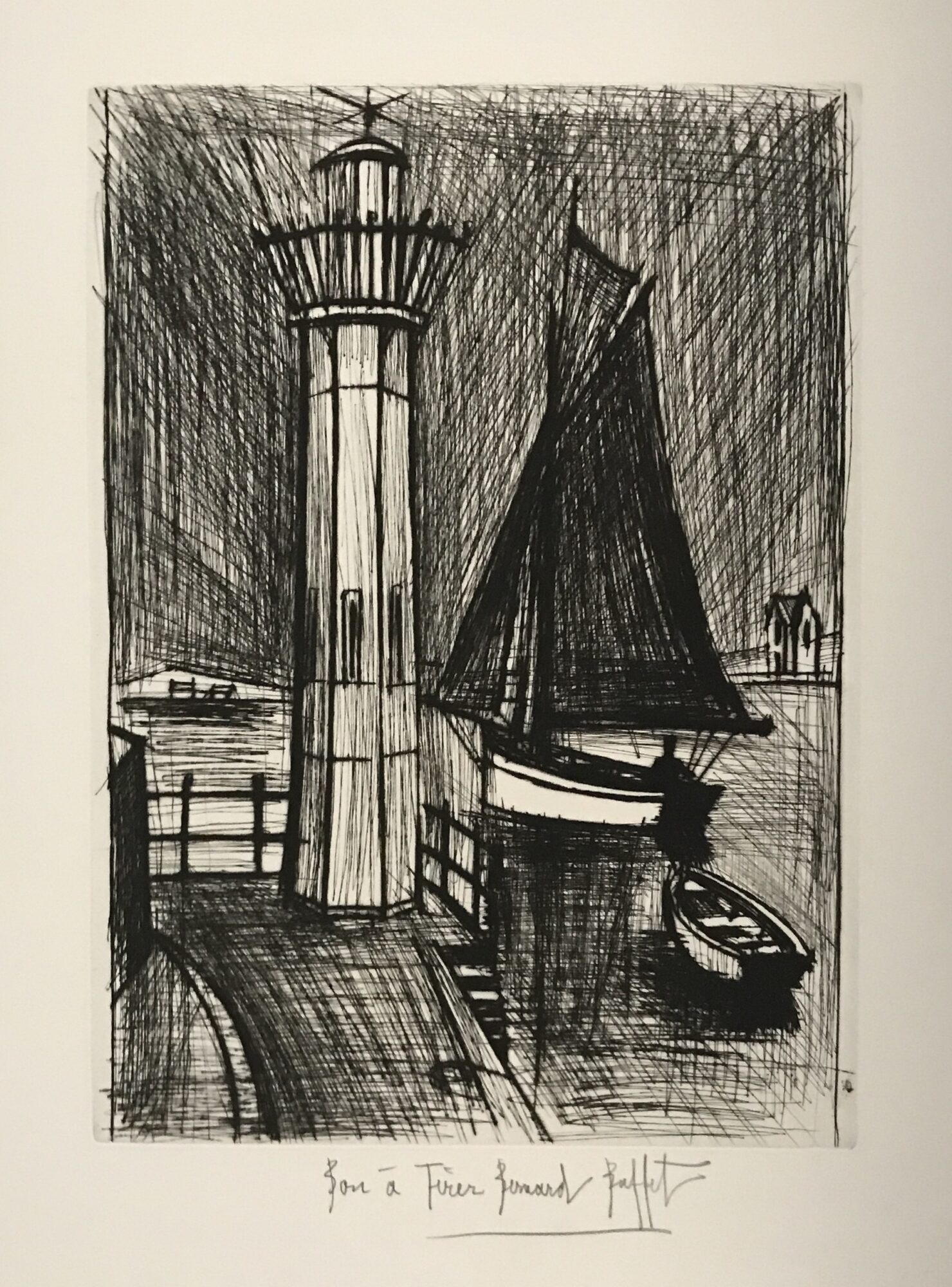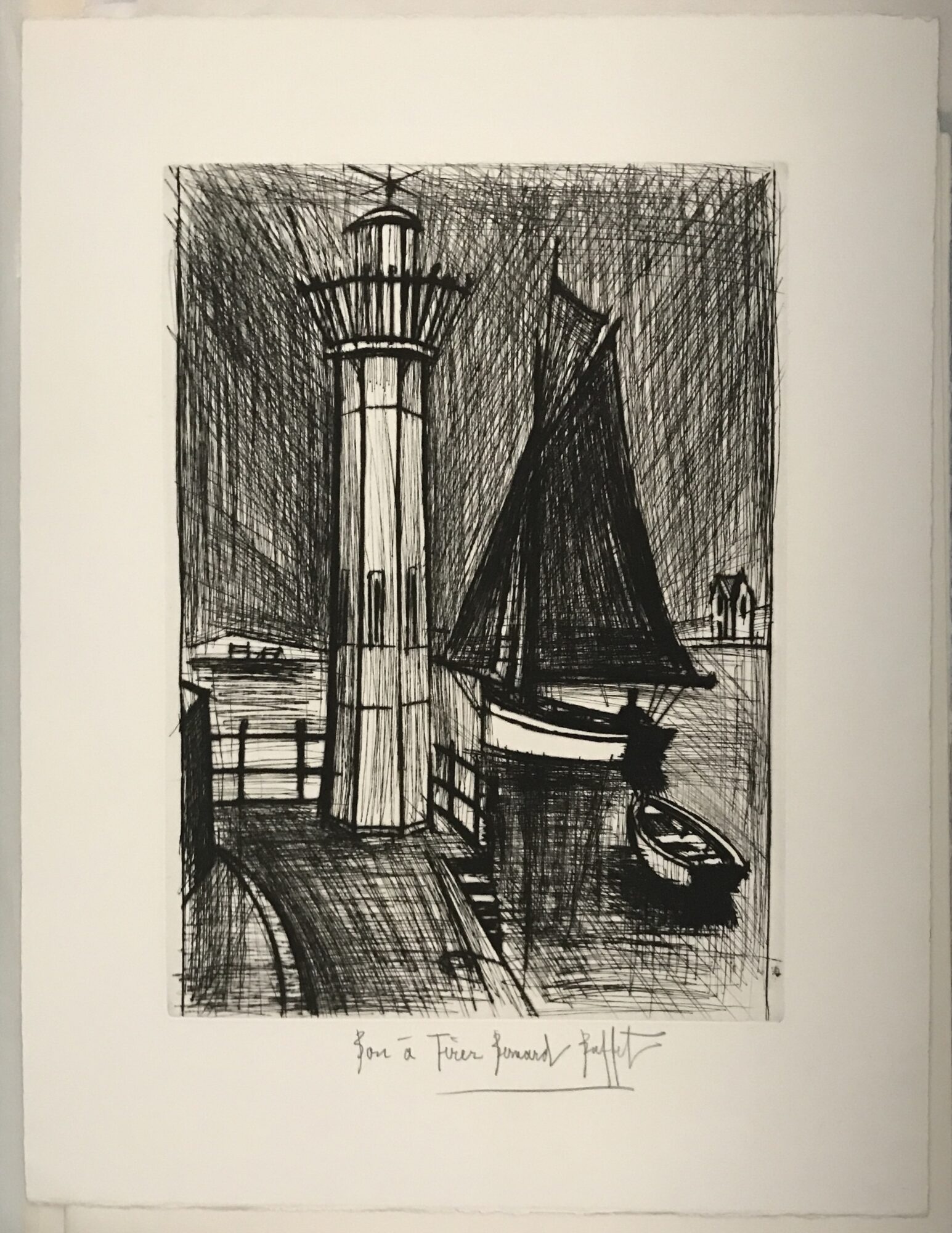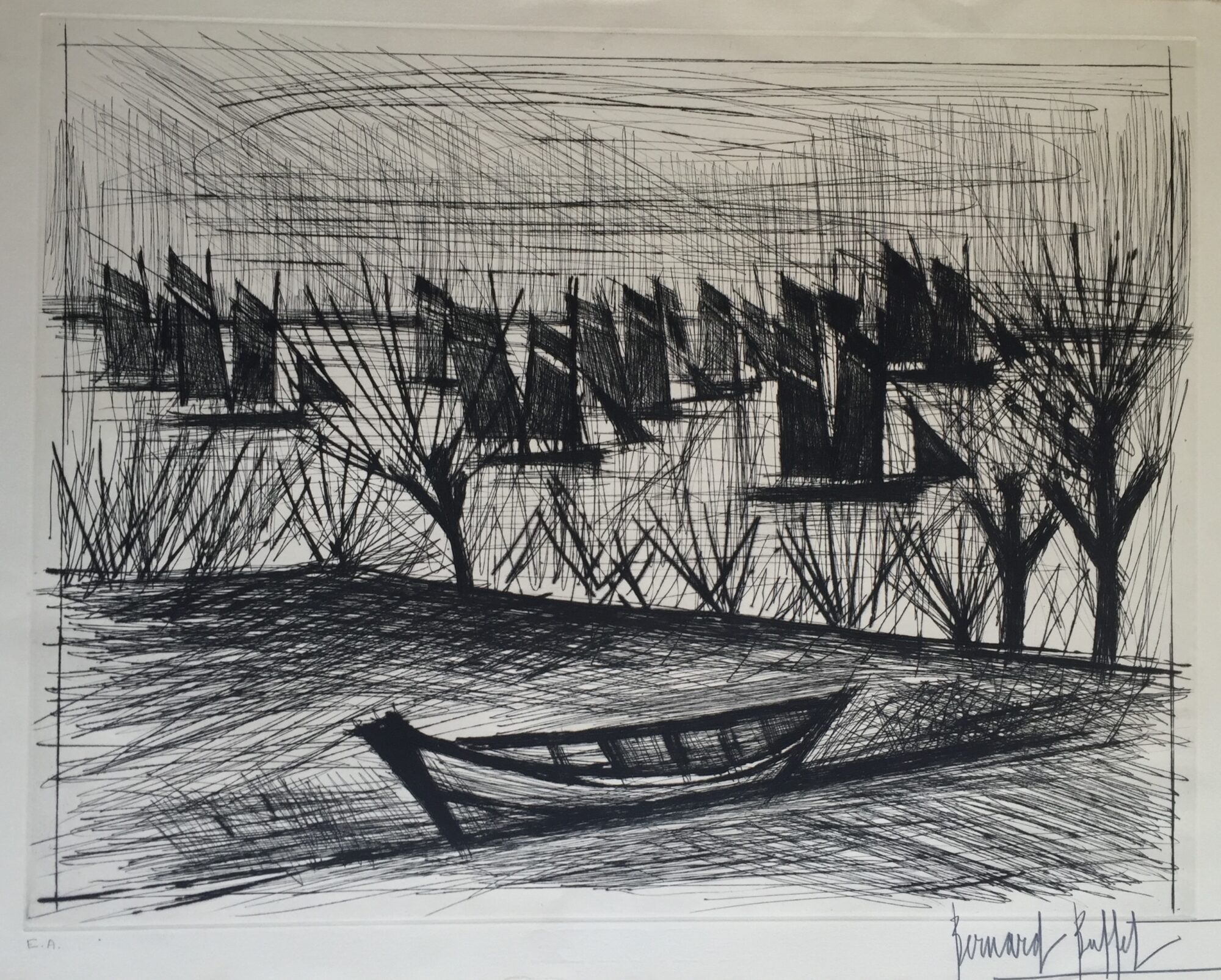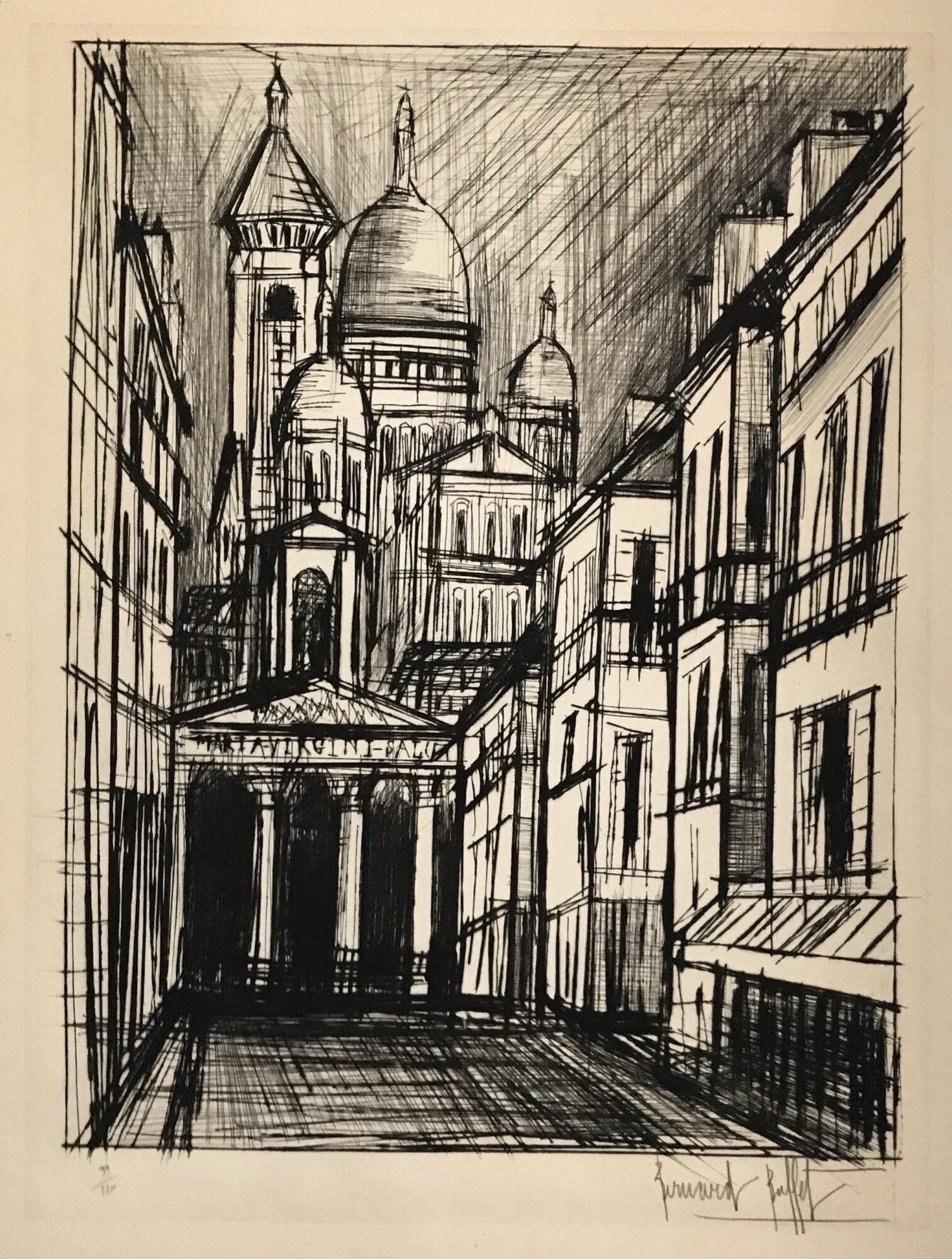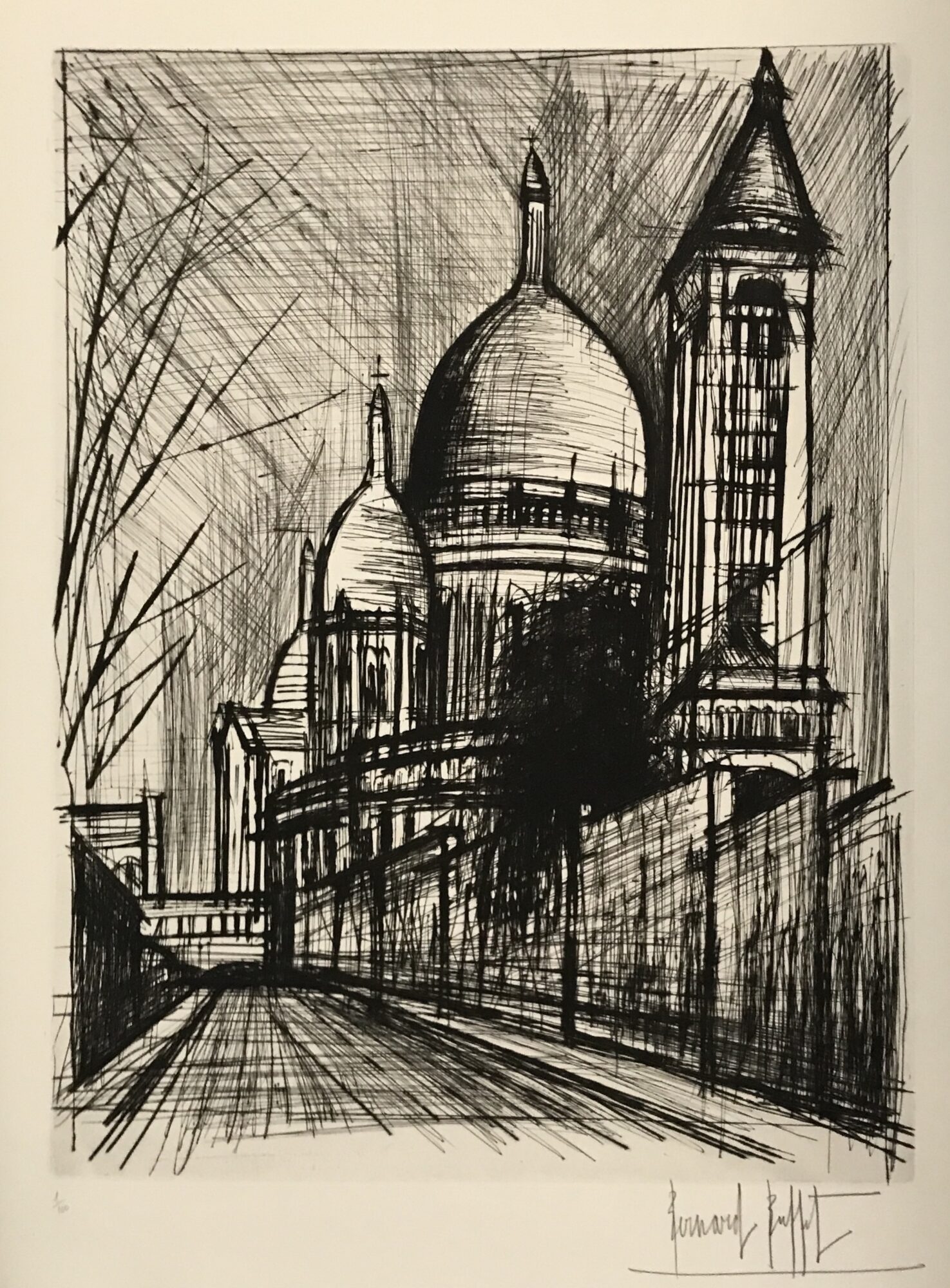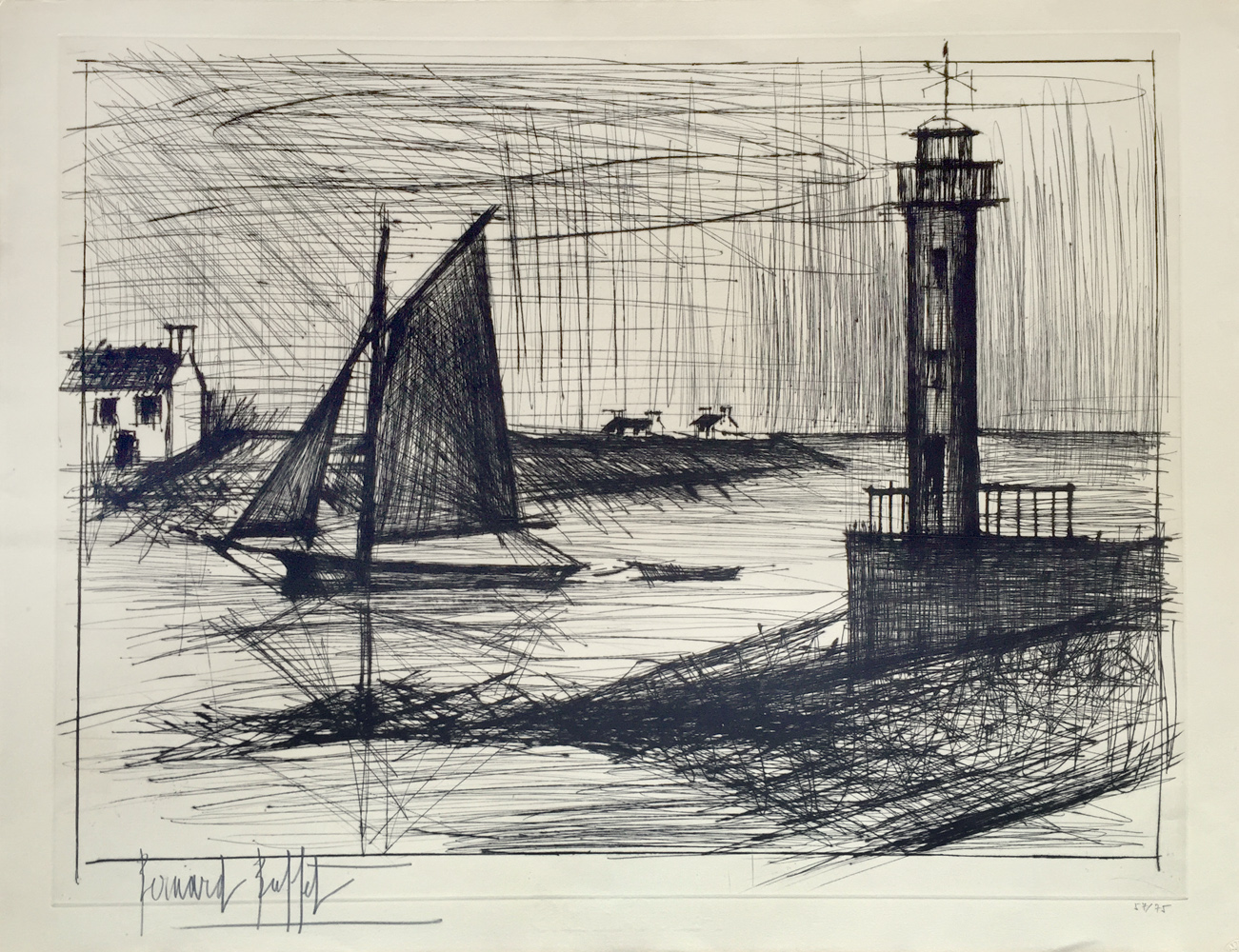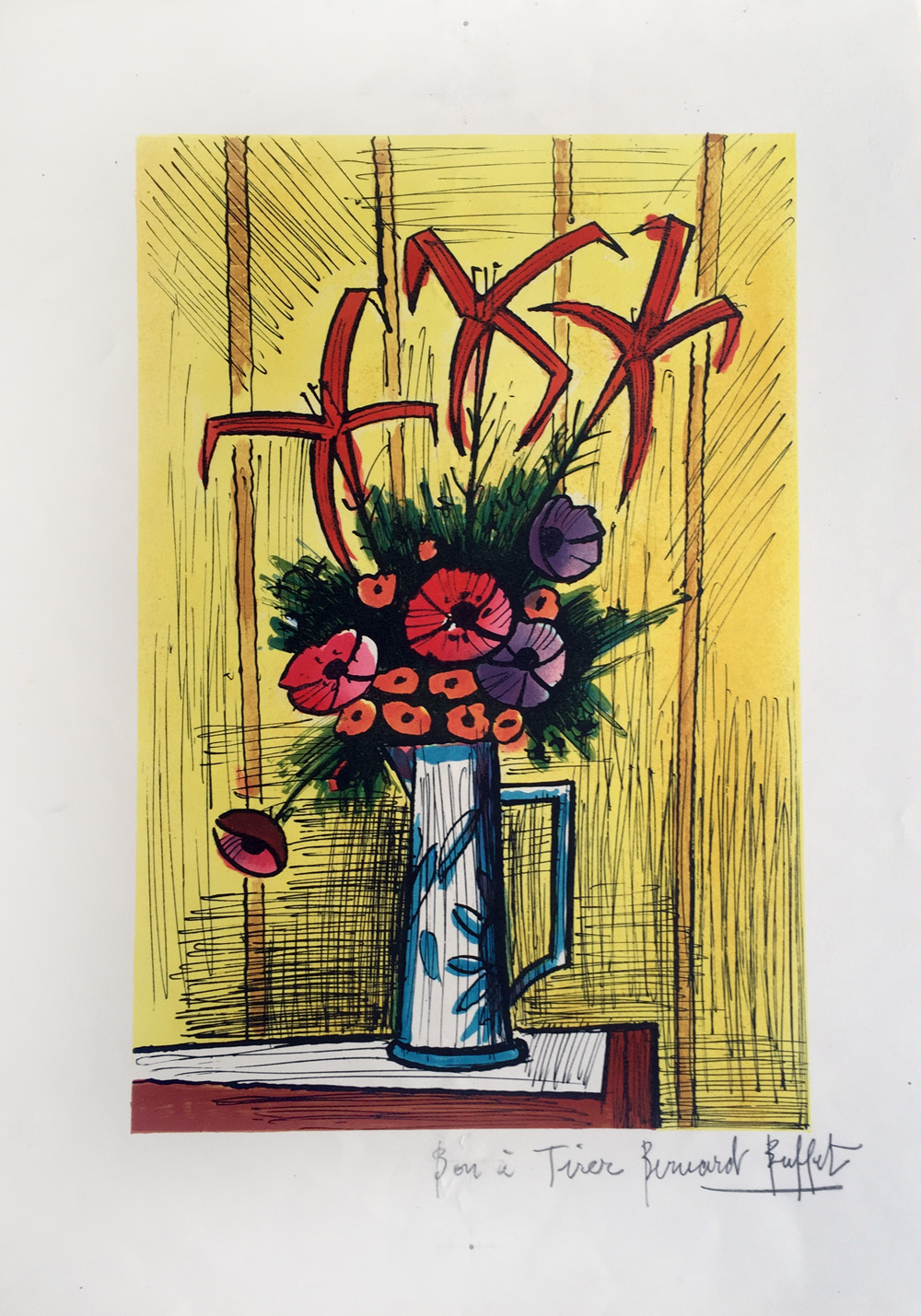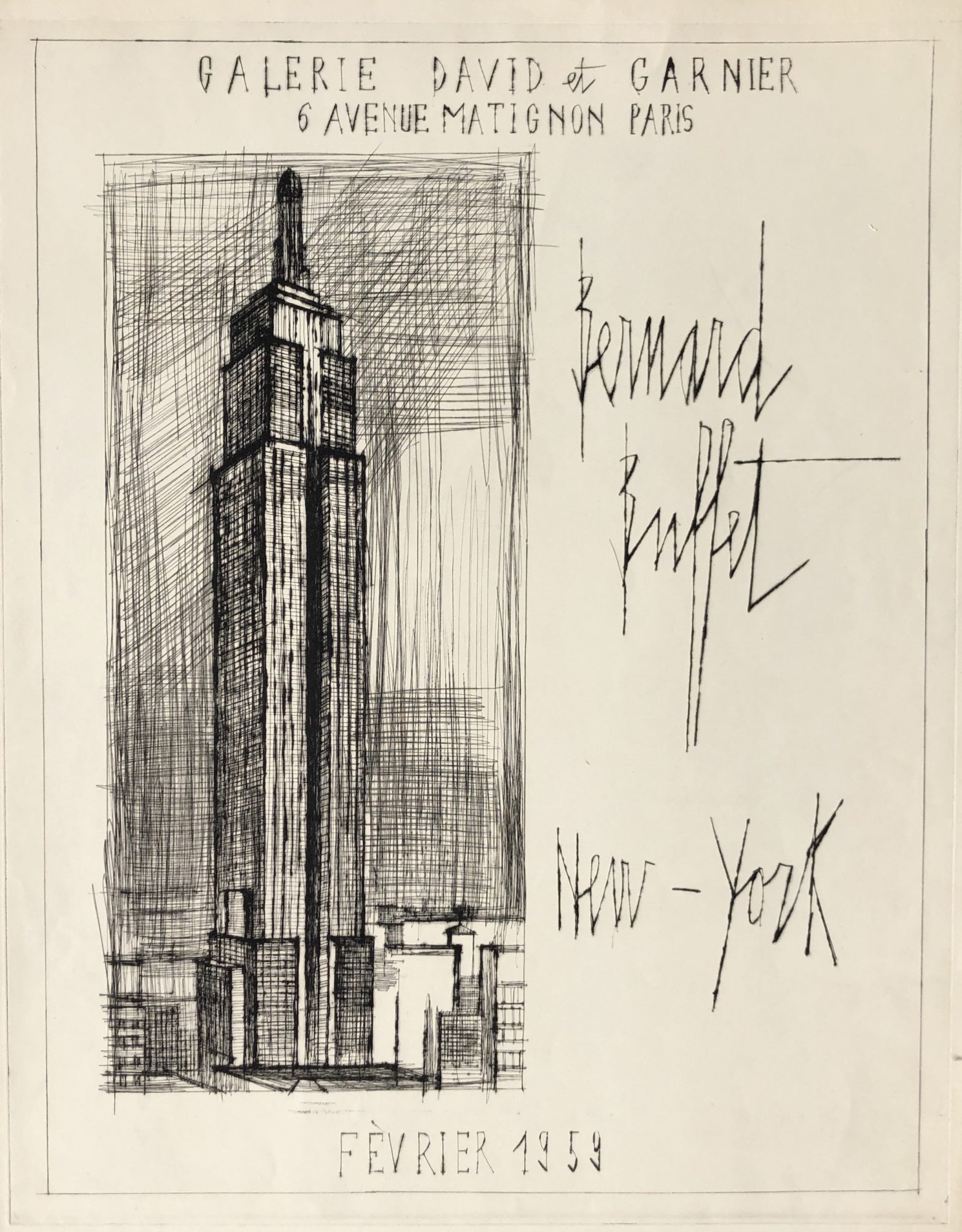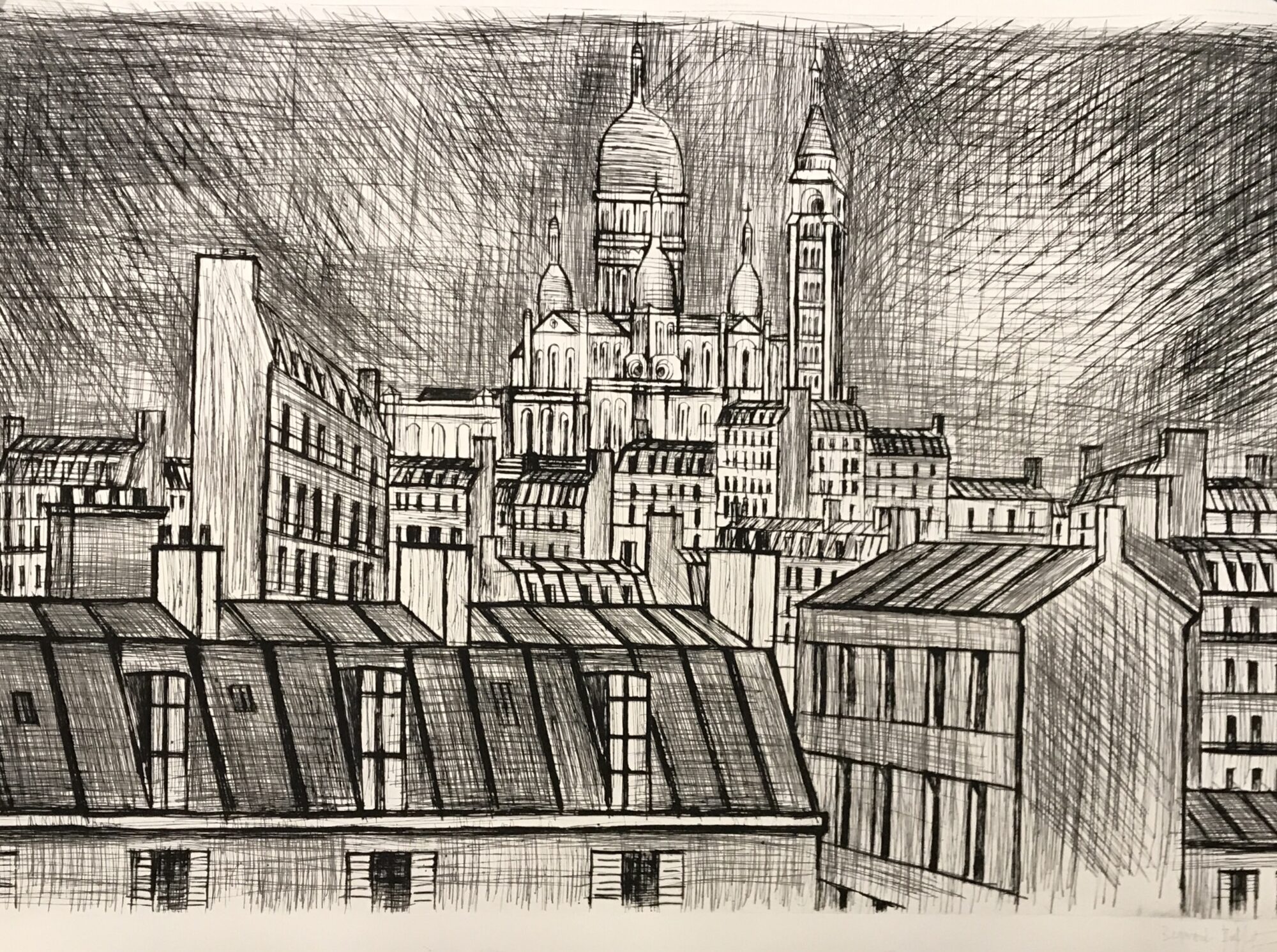Bernard Buffet – Phare et Bateau de Peche
Bernard Buffet, Phare et Bateau de Peche is an original drypoint on Rives BFK Paper. This print is hand signed and annotated a “Bon a Tirer” proof before the regular edition of 150. Rheims 106.
Embodying Jean-Paul Sartre’s Existentialism and Albert Camus’s Absurdism, Bernard Buffet’s painting conveyed the anxiety that permeated France during the Nazi occupation and came to dominate the post-war figurative art scene. A member of a group called L’Homme Témoin (The Witness) along with Bernard Lorjout and André Minaux, Buffet developed a realist style infused with social criticism, featuring a restrained palette and black outlines.
Phare et Bateau de Peche exhibits how Buffet is best known for his grim “Horror of War” series and myriad streetscapes and interior scenes populated by angular, emotionless figures. Self-portraits, religious scenes, still lifes also figure among his oeuvre, which extends to lithography, engraving, and sculpture.
| Title | Phare et Bateau de Peche |
|---|---|
| Alt. Title | Lighthouse and Fishing Boat |
| Medium | Drypoint |
| Year | 1980 |
| Edition | BAT |
| Catalogue Raisonné | Rheims 106 |
| Signature | Signed |
| Size | 26 x 19.75 (in) 66 x 50 (cm) |
| Price | Price on Request |
Description
Bernard Buffet, Phare et Bateau de Peche is an original drypoint on Rives BFK Paper. This print is hand signed and annotated a “Bon a Tirer” proof before the regular edition of 150. Rheims 106.
Embodying Jean-Paul Sartre’s Existentialism and Albert Camus’s Absurdism, Bernard Buffet’s painting conveyed the anxiety that permeated France during the Nazi occupation and came to dominate the post-war figurative art scene. A member of a group called L’Homme Témoin (The Witness) along with Bernard Lorjout and André Minaux, Buffet developed a realist style infused with social criticism, featuring a restrained palette and black outlines.
Phare et Bateau de Peche exhibits how Buffet is best known for his grim “Horror of War” series and myriad streetscapes and interior scenes populated by angular, emotionless figures. Self-portraits, religious scenes, still lifes also figure among his oeuvre, which extends to lithography, engraving, and sculpture.
Buffet had an extremely prolific career, painting over 8,000 works and garnering widespread popularity and acclaim, including dozens of international exhibitions and honors such as being inducted into the Académie des Beaux-Arts in 1974. Born in Paris, France on July 10, 1928, the artist took his own life after a prolonged battle with Parkinson’s disease on October 4, 1999 in Tourtour, France at the age of 71.
Although frequently viewed as heavy and foreboding, there is also a level of beauty in the work of Bernard Buffet. His style is defined by “dry” straight lines revealing the shape of buildings and bodies. His works show elongated, emaciated figures and structures and lend a feeling of despair and loneliness. He shows Paris itself, traditionally portrayed as lively and colorful, in a hard and lifeless manner. While predecessors like Renior and Caillebotte used rain and stippled light to give beauty to each Parisian world they depicted, Buffet shows us the grace in the city’s structure, relying on the importance of drawing, the basis of all great work. This fundamental and visually heavy approach actually shows us the underlying beauty of such a popular and visually pleasing city.
Additional information
| Title | Phare et Bateau de Peche |
|---|---|
| Alt. Title | Lighthouse and Fishing Boat |
| Medium | Drypoint |
| Year | 1980 |
| Edition | BAT |
| Catalogue Raisonné | Rheims 106 |
| Signature | Signed |
| Size | 26 x 19.75 (in) 66 x 50 (cm) |
| Price | Price on Request |

